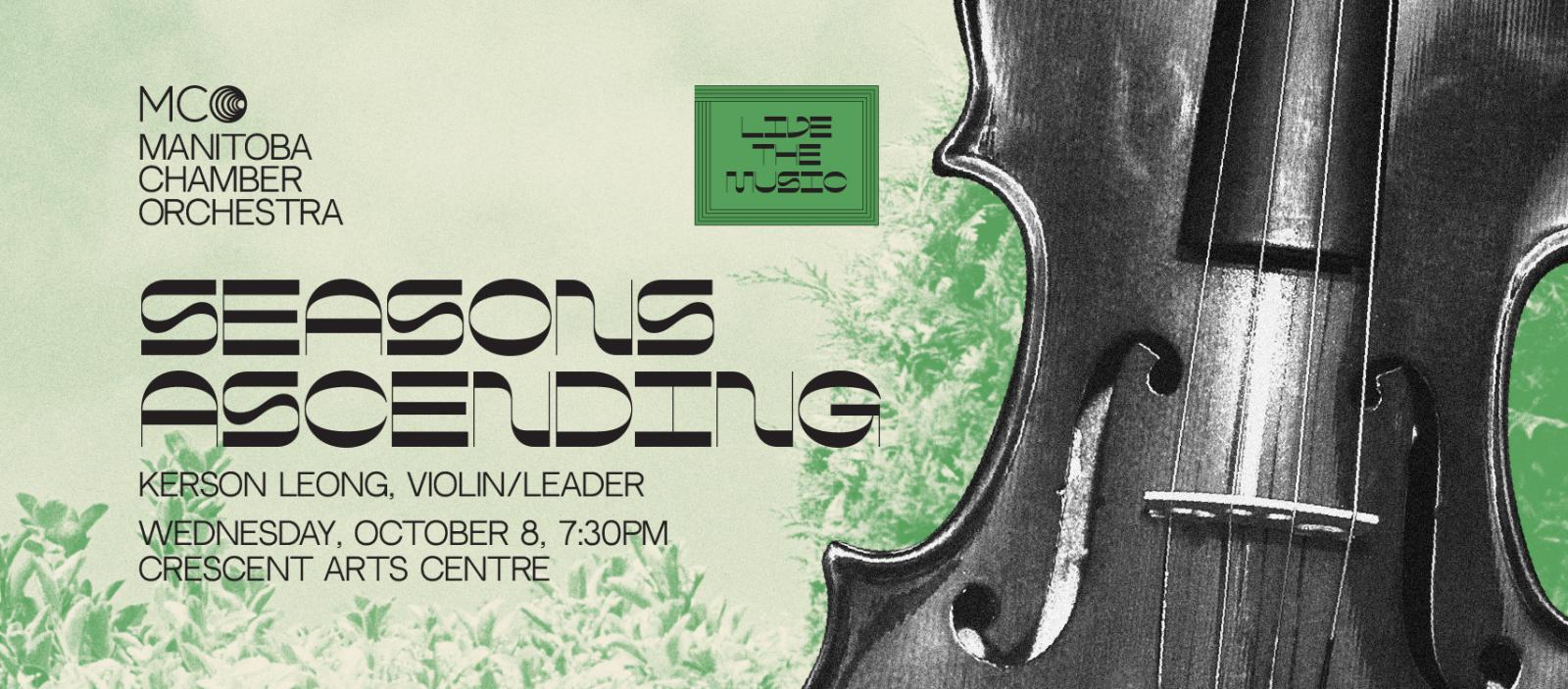Subscribe now or get individual concert tickets through Showpass or by calling MCO's Ticketline at (204) 783-7377.
1 / SEASONS ASCENDING
7.30pm, Wednesday, October 8
Crescent Arts Centre, 525 Wardlaw Ave.
Kerson Leong, violin/leader
The Buhler Concert
A lively dance through the seasons celebrating the pastoral and jubilant beauty of nature featuring superstar Canadian violinist Kerson Leong, with Max Richter’s groundbreaking Seasons Recomposed as its centrepiece.
Kerson Leong has been described as “not just one of Canada’s greatest violinists but one of the greatest violinists, period” (Toronto Star). Forging a unique path since his First Prize win at the International Yehudi Menuhin Violin Competition in 2010, he continues to win over colleagues and audiences alike with “a mixture of spontaneity and mastery, elegance, fantasy, intensity that makes his sound recognizable from the first notes” (Le Monde).
-
Max Richter
Seasons Recomposed
Ralph Vaughan Williams
The Lark Ascending (string orchestra arrangement by Nurhan Arman)
Edvard Grieg
Holberg Suite
Program subject to change
-
Concert Sponsor: Pollard Banknote
Music Director Sponsor: Don Streuber
Subscribe now or get individual concert tickets through Showpass or by calling MCO's Ticketline at (204) 783-7377.
ONLINE PROGRAM



